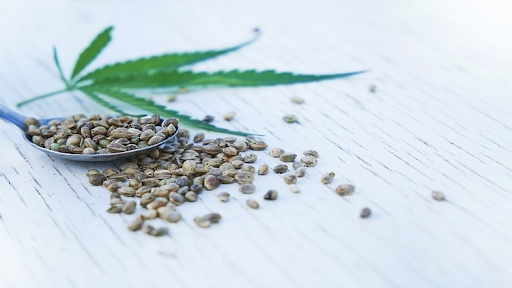
What is Cannabidiol (CBD)?
Cannabidiol is a chemical found in the Cannabis sativa plant, popularly known as marijuana or hemp, and it has medical use. Cannabis sativa contains more than 80 chemicals known as cannabinoids. Even though marijuana’s main active component is delta-9-tetrahydrocannabinol (THC), the cannabidiol may also be derived from hemp, which has only extremely small quantities of THC. Therefore, CBD by itself could not cause a high.
Hemp products are now legal in the United States after passing the 2018 Farm Bill (hemp legalization and the status of CBD). However, this does not imply that all hemp-derived CBD products are legal in all states. Food and dietary supplements cannot legally contain cannabidiol (CBD) because it has been examined as a new medication. Also, CBD is not allowed to be incorporated in products that are marketed with therapeutic claims.
When it comes to “cosmetic” items, cannabidiol can only be used if it contains less than 0.3 percent THC. CBD is still found on some products labeled as dietary supplements on the market. When it comes to cannabidiol content, product labels are often inaccurate.
CBD is most widely used to treat epilepsy (seizure disorder). However, there is no clear scientific evidence to back these claims or support medical marijuana use for anxiety, pain, a muscular condition known as dystonia, Parkinson’s disease, Crohn’s disease, and many other health issues or illnesses.
How Does CBD Work?

There are effects of cannabidiol on the brain. The specific cause of these consequences is unknown. CBD appears to block the breakdown of a neurotransmitter in the brain that affects pain, mood, and cognitive process. Psychotic symptoms associated with illnesses such as schizophrenia seem to be reduced by preventing the breakdown of this chemical and boosting its blood levels.
CBD or medical marijuana might potentially prevent some of delta-9-tetrahydrocannabinol’s intoxicating health effects (THC). Aside from that, cannabidiol appears to help with anxiety, insomnia, and pain.
Are There Safety Concerns When Taking CBD?
For oral use: CBD can be SAFE when taken orally or sprayed under the tongue. Oral cannabidiol doses of up to 300 mg per day have been used for up to six months without side effects. Taken orally for up to four weeks, higher doses of 1200-1500 mg daily have been found. To Epidiolex, a prescription cannabidiol medication is approved for oral use at levels up to 25 mg/kg per day. Cannabidiol (CBD) sprays administered under the tongue can be sustained for up to 2 weeks at doses of 2.5 mg.
There have been reports of CBD or medical marijuana with adverse health effects such as a dry mouth, low blood pressure, drowsiness, and lightheadedness. Some people using greater doses of Epidiolex have also shown signs of liver damage.
Special Precautions And Warnings For Users and Future Users
- For pregnant and lactating/breastfeeding women – It is POSSIBLY UNSAFE to take cannabidiol if you are pregnant or lactating. Cannabis-based goods may contain other substances that are dangerous to a fetus or infant. Avoid using it at all costs.
- For Children – Epidiolex, a prescription drug, is POSSIBLY SAFE when used orally in amounts up to 25 mg/kg per day. And if you have a child who is at least one year old, you can use this.
- For people with lung disease – When it comes to cannabidiol, persons with liver illness may need to utilize lower doses.
- For people who have Parkinson’s disease – Taking high dosages of cannabidiol, according to some early studies, may worsen muscular activity and tremors in patients with Parkinson’s
Conclusion
Medical marijuana and cannabidiol are currently allowed for both medicinal and recreational reasons in the following states: Alaska; California; Colorado; Maine; Massachusetts; Nevada; Oregon; Vermont; Washington; and Washington, D.C. It is allowed in some form or another in 23 states, including for therapeutic use in some cases. Another 14 states just allow CBD oil to be sold. However, both are prohibited in the states of Idaho, Nebraska, and South Dakota.
Last question: Is it possible for cannabidiol to show up on a drug test? It shouldn’t, as long as you’re purchasing cannabidiol that has been third-party tested and does not include any additional THC. However, athletes who are frequently compelled to submit to more sensitive drug testing may “possibly test positive” for trace amounts of THC if they have been using cannabidiol-infused products.

Leave a Reply